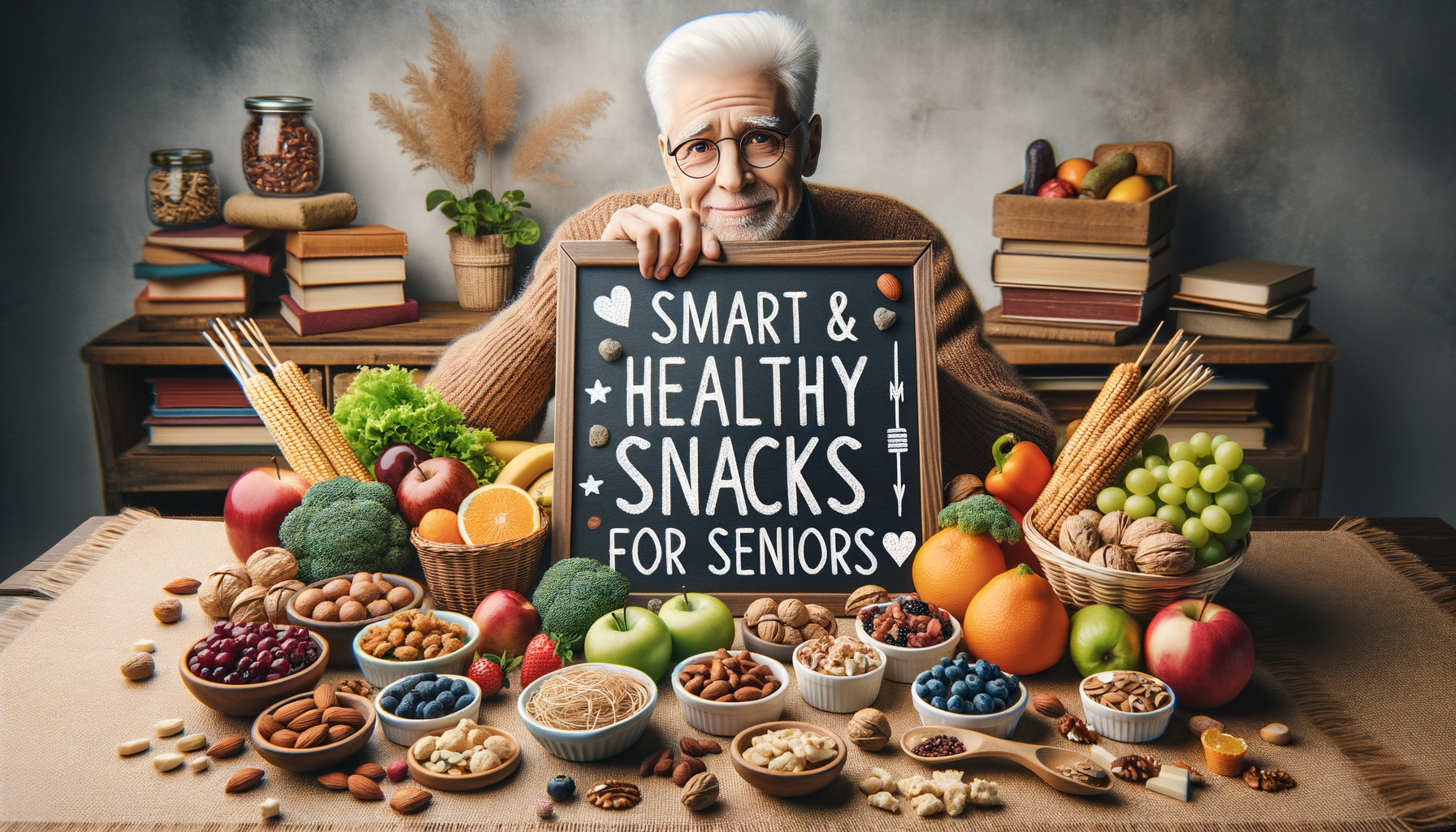
A Practical Guide to 7 Smart Snack Picks Supporting Senior Health and Nutrition
Understanding the Nutritional Needs of Seniors
As we age, our bodies undergo various changes that affect nutritional needs. Metabolism slows down, muscle mass decreases, and the risk of chronic illnesses rises. Therefore, seniors must focus on nutrient-dense foods that provide essential vitamins and minerals without excessive calories. Snacks play a crucial role in filling nutritional gaps and maintaining energy levels throughout the day.
Older adults often face challenges such as decreased appetite, dental issues, and changes in taste and smell, which can impact their dietary choices. Thus, selecting snacks that are easy to consume and palatable becomes essential. Furthermore, seniors need to pay attention to specific nutrients like calcium, vitamin D, fiber, and protein to support bone health, digestion, and muscle maintenance.
In this context, healthy snacking is not just about satisfying hunger, but about enhancing overall well-being. By incorporating a variety of snacks that cater to these nutritional requirements, seniors can enjoy a balanced and fulfilling diet that supports their health and longevity.
Nutritious Snacks: A Vital Component of a Senior’s Diet
Nutritious snacks are an integral part of a senior’s diet, providing essential nutrients that might be missed in regular meals. They offer an opportunity to increase the intake of vitamins and minerals, especially for those who struggle with larger meals. Here are some examples of nutritious snacks that are both delicious and beneficial for seniors:
- Greek Yogurt: Packed with protein and probiotics, Greek yogurt supports muscle health and digestion. It’s a versatile snack that can be enjoyed plain or with added fruits and nuts for extra flavor and nutrients.
- Almonds: A handful of almonds provides healthy fats, fiber, and protein. They are also rich in vitamin E, which is beneficial for skin health and cognitive function.
- Oatmeal: A warm bowl of oatmeal is not only comforting but also rich in fiber, which aids in digestion and helps maintain healthy cholesterol levels.
These snacks are not only nutritious but also easy to prepare and consume, making them ideal for seniors who may have limited energy or mobility.
Fiber-Rich Snacks for Digestive Health
Fiber is a crucial nutrient for seniors, as it aids in maintaining a healthy digestive system and prevents constipation—a common issue among older adults. Consuming fiber-rich snacks can also help regulate blood sugar levels and lower cholesterol. Here are some fiber-rich snack options that are both tasty and beneficial:
- Whole Grain Crackers with Hummus: Whole grain crackers provide complex carbohydrates and fiber, while hummus adds protein and healthy fats, making this a balanced and satisfying snack.
- Fresh Fruits: Apples, pears, and berries are excellent sources of fiber and can be enjoyed on their own or added to yogurt or oatmeal for a nutritious boost.
- Vegetable Sticks with Dip: Carrot, celery, and bell pepper sticks paired with a healthy dip like guacamole or tzatziki offer a crunchy, fiber-rich alternative to traditional snacks.
Incorporating these fiber-rich snacks into a senior’s diet can significantly improve digestive health and overall well-being.
Balancing Sweet Cravings with Healthy Options
Many seniors have a sweet tooth, but indulging in sugary snacks can lead to health issues such as weight gain, diabetes, and heart disease. Fortunately, there are healthier alternatives that satisfy sweet cravings while providing nutritional benefits:
- Dark Chocolate: In moderation, dark chocolate can be a heart-healthy snack due to its antioxidant content. Choose varieties with at least 70% cocoa for maximum benefits.
- Fruit Smoothies: Blending fruits like bananas, berries, and spinach with a splash of almond milk creates a sweet, nutrient-dense snack that’s easy to consume.
- Baked Apples with Cinnamon: This simple dessert offers natural sweetness and fiber, making it a comforting and healthy treat.
These options allow seniors to enjoy the sweetness they crave while maintaining a balanced diet.
Practical Tips for Incorporating Healthy Snacks into Daily Life
Incorporating healthy snacks into a senior’s daily routine can be simple and enjoyable with a few practical strategies. Here are some tips to make healthy snacking a seamless part of everyday life:
- Plan Ahead: Prepare snacks in advance and store them in easily accessible containers. This ensures that healthy options are always available, reducing the temptation to reach for less nutritious choices.
- Portion Control: Use small bowls or snack-sized bags to keep portions in check. This helps prevent overeating and ensures a balanced intake of nutrients.
- Variety is Key: Rotate different snacks throughout the week to keep things interesting and ensure a wide range of nutrients.
By following these tips, seniors can enjoy a diverse and nutritious snacking routine that supports their health and well-being.